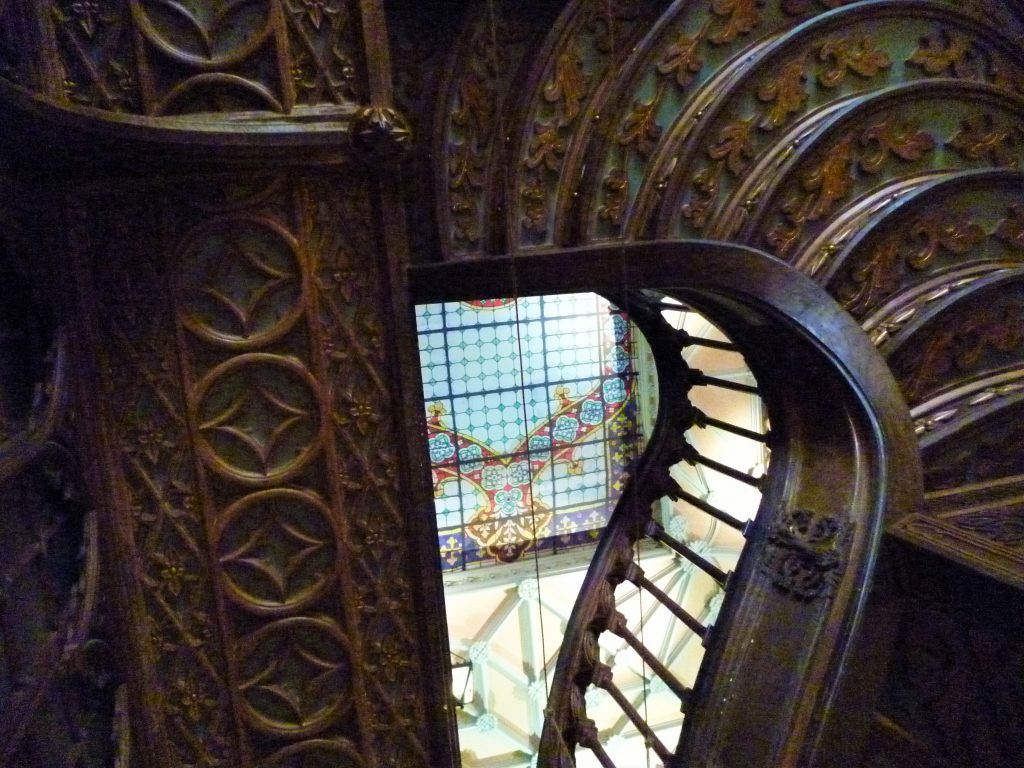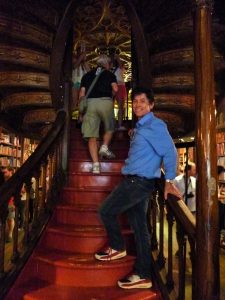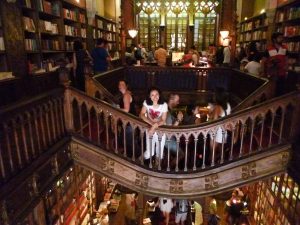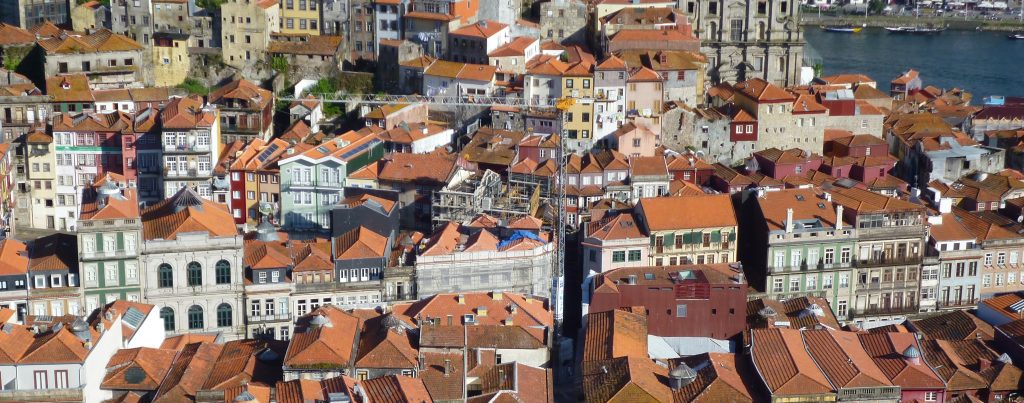The Magic Bookshop of JK Rowling
J.K. Rowling’s Magic Bookshop
The most beautiful bookshop in the world is surely Lello e Irmão in Oporto. It is the bookshop J.K. Rowling used to visit when she was an English teacher in Portugal in the eighties (as I was), and the one whose spectacular staircase—a neo-Gothic carved extravaganza—inspired the one at Hogwarts. For this reason alone, perhaps sadly, it has become a site of pilgrimage for Potter fans, to the extent that the Lello family, who still run the store over a hundred years after it was built, are able to charge an entrance fee of 3 Euros, and there are long lines to get in. I think it’s the only bookshop in the world that can do so. (If you buy a book, as I did—in fact two of António Lobo Antunes’ novels, one in Portuguese and one in Spanish—the entrance fee is refunded.) Most visitors are more interested in snapping selfies and other photos than looking at the books, and in truth the selection is far from wonderful, though a number of European languages are represented. But whether you are a fan of Rowling or not, and I have to confess that I am not, although I recognize her talent, the shop is well worth a visit if you have any interest in Art Nouveau architecture and art.
Since this has become a taste of mine only in recent years, I never visited the bookshop when I lived in the country for a decade, although I several times came to Oporto or Porto as the Portuguese call it. So what’s so special about it? Art Nouveau is arguably the last flowering of Romanticism, and Lello e Irmão is nothing if not Romantic: bookcases with Gothic arches, a ceiling which appears to be of carved wood fan vaulting but is actually of plaster, a stained glass skylight, and the famous staircase with its twin curving flights of steps.
Today, June 25th, 2016, the bookshop was hot and stuffy and as crowded as a museum in Florence or Rome. The selection of books seemed somewhat haphazard, although all the major Portuguese authors were represented well, and many of the books were overpriced—a short paperback history of Portugal was 26 Euros, for example, over 30 dollars. Nevertheless, an air of fin-de-siècle magic pervaded the place, and it had little or nothing to do with Harry Potter. One can’t help feeling happy that any bookshop could be as popular as this in our culturally impoverished times, for whatever reasons. Perhaps some of the people who come for Hogwarts will leave with a volume of Miguel Torga or José Saramago or Eça de Queiróz—or perhaps a few of them will pause in their compulsive picture-taking and actually look at the façade or the staircases or the stained glass window. All art has its roots in magic, and literature is no exception. You have to let yourself go a little wild to really appreciate it. You have to have the ability to believe in the mysterious and the irrational. You have to be a bit Dionysian. And Porto is a Dionysian city. How much we sensible Anglo-Saxons have to learn from our Latin cousins!
Garry Craig Powell
Garry Craig Powell, until 2017 professor of Creative Writing at the University of Central Arkansas, was educated at the universities of Cambridge, Durham, and Arizona. Living in the Persian Gulf and teaching on the women’s campus of the National University of the United Arab Emirates inspired him to write his story collection, Stoning the Devil (Skylight Press, 2012), which was longlisted for the Frank O’Connor International Short Story Award and the Edge Hill Short Story Prize. His short fiction has appeared in Best American Mystery Stories 2009, McSweeney’s, Nimrod, New Orleans Review, and other literary magazines. Powell lives in northern Portugal and writes full-time. His novel, Our Parent Who Art in Heaven, was published by Flame Books in 2022, and is available from their website, Amazon, and all good bookshops.
- Web |
- More Posts(79)



